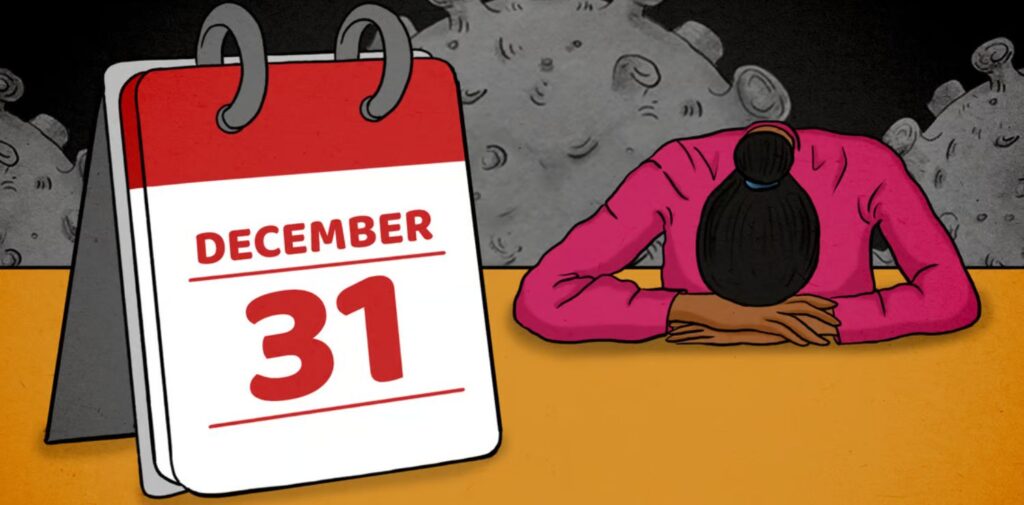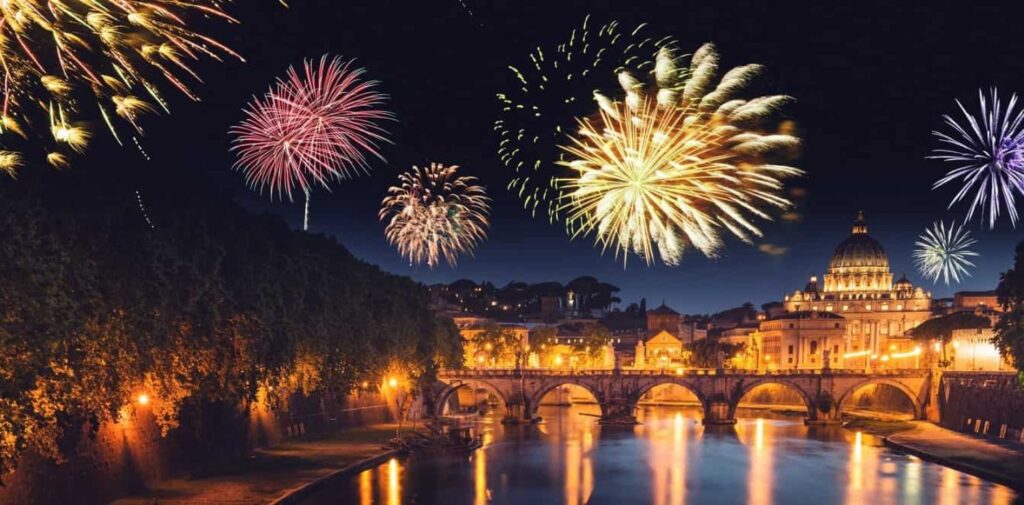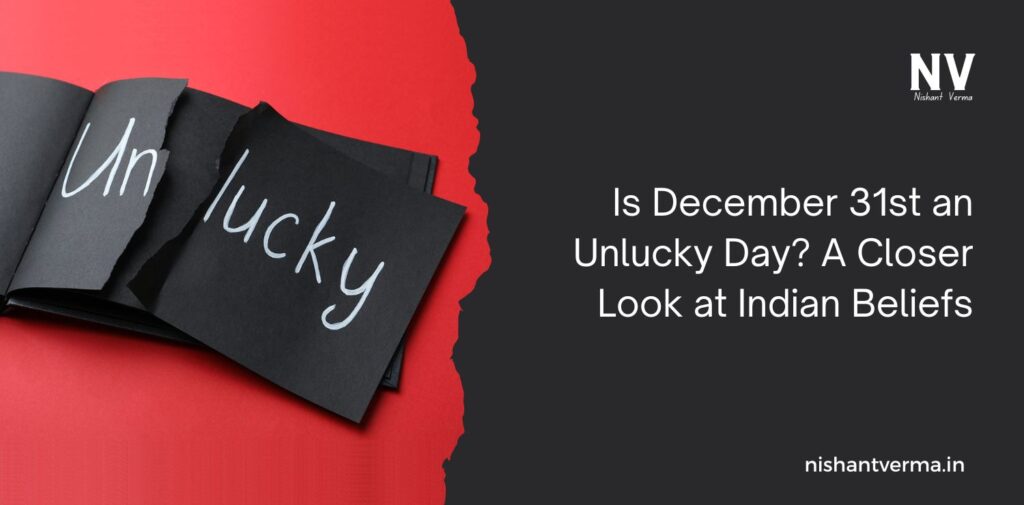In India, many superstitions and beliefs shape the way people perceive certain days, months, and even numbers. One such belief revolves around December 31st, the last day of the year. For some, it is a day filled with excitement and celebration, as it marks the end of the year and the arrival of the new one. However, for others, December 31st is considered an unlucky day. But why do some people in India view this day as a bad omen? Let’s explore this topic in detail and understand where these beliefs come from.
The Influence of Superstitions in India
India is a land rich in culture and traditions, and superstitions have been an integral part of life for centuries. People often associate certain days, numbers, and events with luck or misfortune, based on old customs, folklore, and even astrological predictions. For example, many people believe that starting a new venture on an auspicious day like Akshaya Tritiya or Diwali brings success, while others may avoid beginning new projects on days like Amavasya (new moon) due to the belief that it is unlucky.
Similarly, the perception of December 31st as an unlucky day has been passed down through generations, influenced by astrology, numerology, and cultural stories. But it is important to remember that these beliefs are not universal, and different communities and individuals have varying opinions about the day.

December 31st and the Concept of Endings
In astrology and numerology, the last day of the year, December 31st, is sometimes seen as a symbol of endings rather than new beginnings. In many cultures, endings are often viewed with sadness or fear, as they signify the conclusion of something significant. In contrast, the arrival of the new year is seen as a fresh start, a chance to wipe the slate clean and begin anew. However, when viewed from a superstitious perspective, the closing of the year can be interpreted as the end of a cycle, and some believe that this may bring bad luck or unwanted energy.
In India, where the concept of time is often cyclical, the idea of closure is deeply tied to spirituality. People may feel that the last day of the year carries negative energy that should be avoided. Some may even choose to stay at home, avoid socializing, or refrain from making any major decisions on this day.
The Myth of New Year’s Eve Accidents
Another reason why December 31st is sometimes considered unlucky is because of the number of accidents and mishaps that occur on New Years Eve. In many Indian cities, December 31st is marked by large parties, celebrations, and public gatherings. As people indulge in festivities, there is often a surge in road accidents, fights, and even health-related issues due to overindulgence in alcohol and food.
While this can happen on any given day, the chaos surrounding New Year’s Eve may make it seem like December 31st is especially prone to accidents and misfortunes. For those who already believe in the negative energy of this day, these incidents only reinforce the idea that December 31st is an unlucky day.

The Superstition of ‘Starting Fresh’
Another important aspect of the December 31st superstition is the belief that it is not a good day to start new things. In India, many people believe that the first day of the new year should be dedicated to starting fresh, setting goals, and planning for the future. However, December 31st is often seen as a day for reflecting on the past rather than looking forward. This perception may discourage people from starting new ventures or taking bold steps on the final day of the year.
This idea is closely tied to the belief that the energy of the day is not suitable for new beginnings. People may avoid important decisions, such as buying a new house, starting a business, or making major life changes, on December 31st because they fear that doing so will bring bad luck.
Astrological Factors: The Role of the Stars
Astrology plays a major role in Indian culture, and many people look to the stars and planetary positions to guide their decisions. According to some astrologers, the positioning of celestial bodies on December 31st may not be favourable for certain activities, especially when it comes to personal growth and prosperity. This belief is often linked to the lunar calendar, which influences auspicious days for various ceremonies and rituals.
On December 31st, the moon’s position and its relationship with other planets may be interpreted as unfavourable for important decisions or celebrations. Some people believe that the alignment of the stars during this time can lead to negative outcomes, reinforcing the idea that the last day of the year is unlucky.
Is December 31st Unlucky?
Despite these superstitions and beliefs, it’s important to remember that December 31st is just another day on the calendar. It is not inherently unlucky or special in any way. The idea of luck is subjective, and much of it depends on personal beliefs and experiences. For many people, December 31st is a day of joy and celebration, filled with parties, family gatherings, and excitement for the future.
In fact, for many people in India, December 31st is seen as a day to let go of the past and embrace new opportunities. The end of the year is a time to reflect on the achievements, lessons, and challenges of the past 12 months while looking forward to a brighter and more promising year ahead. This positive outlook counters the belief that the day brings misfortune.

Changing Perspectives in Modern Times
With changing times and the influence of modern thinking, many young people in India are less likely to subscribe to the belief that December 31st is an unlucky day. In fact, the celebration of New Year’s Eve has become a global phenomenon, with people of all cultures and religions marking the occasion with parties, fireworks, and other festivities. While some may still hold on to old superstitions, the majority of people are choosing to focus on the positive aspects of this day.
Conclusion
In conclusion, the idea of December 31st being an unlucky day is rooted in old superstitions, astrological beliefs, and cultural practices. While some people in India may choose to avoid important activities or decisions on this day, it is important to recognize that these beliefs are not universal. For many, December 31st is a day of celebration, reflection, and anticipation for the year ahead.
Whether or not it is considered unlucky depends on personal beliefs, but ultimately, it is how we choose to perceive the day that shapes our experiences. So, whether you view December 31st as a day of misfortune or as an opportunity for renewal, it is important to focus on the positive and embrace the spirit of the new year with hope and optimism.




